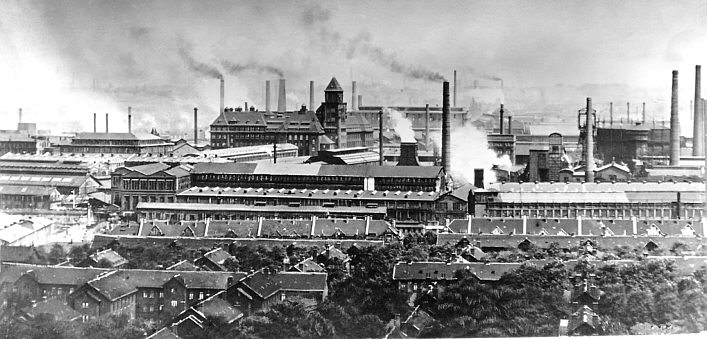I realised I just made a terrible error, the Vickers Machine Gun Factory at Crayford was the
small one.
The Vickers Factory at Erith employed over 14,500 workers, at the same time Vickers Limited also had multiple shipyards, Aircraft Plants, Steel works and factories producing everything from Helmets to 18 Inch Artillery.
The largest single employer in British Industrial History was
Royal Ordnance Factories in WWII with some 311,932 workers as of March 1942.
With 40,000 at just one site
ROF Bridgend, chosen deliberately for its remoteness, hence difficulty to bomb, yet with excellent transportation and logistics. Right next to the main rail-line, with easy access to Best Welsh Anthracite for power ...
no need for an electrical grid, and the Port Talbot Steelworks.
A 900 Acre (3.6 sq. km) site with over 100 buildings
The reason for the great spacing and dispersal of buildings was simple. It was a Munitions Filling Factory, and although there was never a single accident it was always a serious concern. Interestingly it was a
temporary installation, it opened at the start of WW2 and closed at the end.
Also not the largest single Munitions plant in British history, that would be the Royal Arsenal, Woolwich in WW1.
80,000 workers on a 1,285 Acre (5.2 sq. km) site. Post war it was scaled back and during WW2 production was moved to a larger number of, slightly, smaller factories that weren't being bombed!

